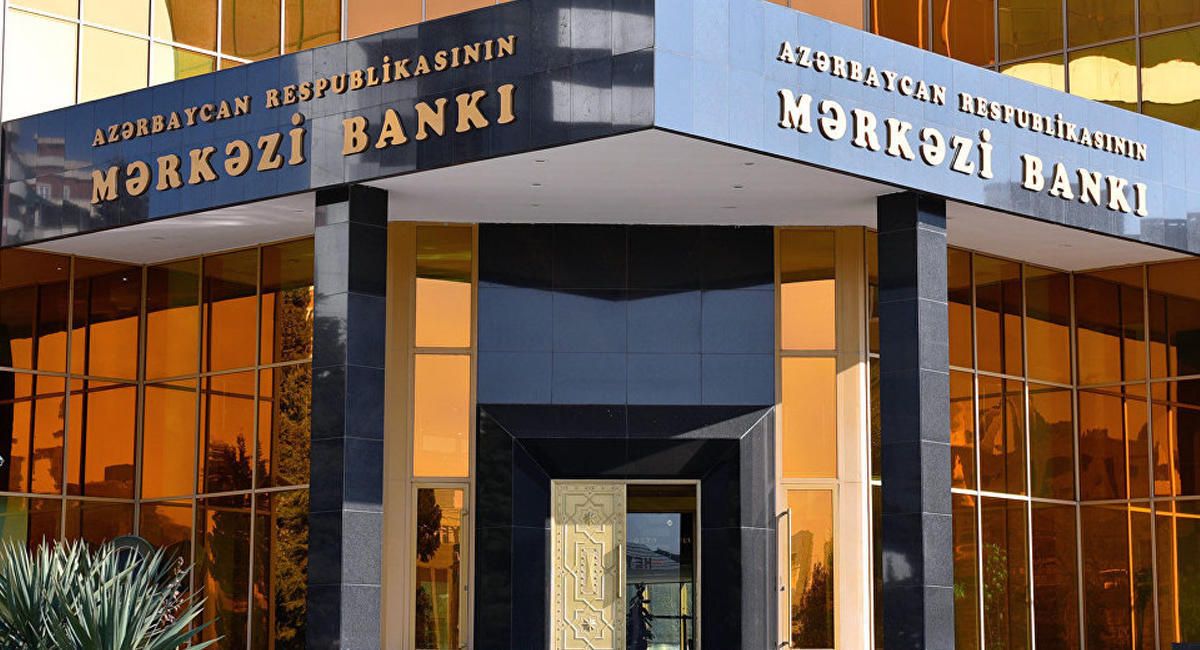Can CBA's decision to reduce interest rates cause Azerbaijani manat's devaluation?

By Sara Ganjiyeva, AZERNEWS
Reports have it that banks around the world keep adjusting interest rates to manage their currencies and respond to global economic conditions. Despite lowering interest rates as part of economic stimulus measures, inflation continues to hit the stock market. Rising costs and uncertain revenue growth take a toll on corporate profit margins, so to speak, and stock prices fall in response. On a broader scale, high inflation creates unknowns about future interest rates.
It is interesting that the Central Bank of Azerbaijan also decided to lower interest rates. This has caused certain questions in people. Even according to some assumptions, opinions have been formed about the risks of the devaluation of the Azerbaijani manat.
Economist expert Emin Gurbanov spoke about inflation risks in his comment to Azernews. He noted that in the last two years, interest rates in Azerbaijan were much higher and even remained unchanged. However, the expert linked the Central Bank's lowering of interest rates with rising inflation.
"Of course, the cause of all this is global inflation. It is known to everyone that after the pandemic, a sharp increase in prices began to be observed. At such a moment, of course, lowering interest rates is a must," the expert said.
According to the economist, the lowering of interest rates continues not only in Azerbaijan but also in European countries.
"If you pay attention, many European countries have implemented similar policies in this regard, which led to a decrease in the money supply. But if we compare the beginning and the end of this year, the inflation rate was relatively high, but now it is decreasing. It is also expected to decrease by 3-5% in the coming years. This was predicted by both our and foreign experts from the World Bank and the International Monetary Fund. Of course, it would be appropriate to increase the interest rates to stimulate the banking sector," Gurbanov said.
Further, the expert was very optimistic about the future of Azerbaijani manat: "I don't think there is any serious threat of inflation rise for the upcoming years. I think the revival of economies is nigh," the expert added.
Inflation is an important factor influencing central bank interest rate decisions. Inflation occurs when the general price level of goods and services in an economy rises, which causes a decrease in the purchasing power of a country's currency. To combat high inflation, central banks can raise interest rates to cut spending and cool the economy.
Often, increased availability of goods in the market as a result of increased production and imports puts downward pressure on prices. This is because a surplus of goods leads to more competitive prices among sellers.
For example, Turkiye's central bank often lowers interest rates as a monetary policy tool to stimulate economic growth and encourage borrowing and spending. When interest rates are low, borrowing becomes cheaper, and consumers and businesses invest and spend more. Thus, there was a period of devaluation of the currency in Turkiye, especially in relation to the lira. With this, the situation stabilized after measures were taken to solve the problem, such as raising interest rates, implementing currency controls, or asking for help from abroad.
Nevertheless, the question arises, whether the Central Bank's lowering of interest rates can lower the exchange rate of the national currency, that is, the manat.
"The reduction of the interest rate can be the cause of inflation. As for devaluation, it also depends on the natural balance. I don't think this can be a reason. Let's assume that the last time it happened in our country was in 2014-2015. It also happened in our foreign balance in import and export transactions. What was this connected with, as a result of the sharp drop of oil in the world markets, a deficit was created in the natural balance. In order to prevent this, the Central Bank released foreign exchange reserves for the corresponding period. These reserves also began to decrease. As we know, if we pay attention to the forecasts, energy resources are expected to increase, not decrease, in the coming winter. If we pay attention to the reserves of the European Union and other countries, we will see that oil and oil products are the main commodities of our export resource, so I don't see a problem with this," Emin Gurbanov concluded.
---
Follow us on Twitter @AzerNewsAz
Here we are to serve you with news right now. It does not cost much, but worth your attention.
Choose to support open, independent, quality journalism and subscribe on a monthly basis.
By subscribing to our online newspaper, you can have full digital access to all news, analysis, and much more.
You can also follow AzerNEWS on Twitter @AzerNewsAz or Facebook @AzerNewsNewspaper
Thank you!
